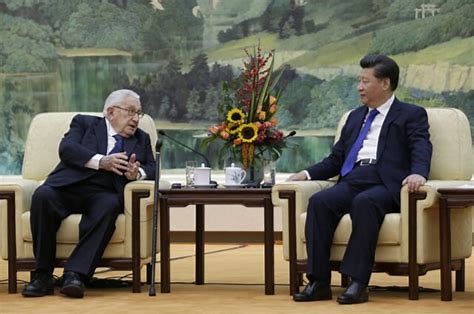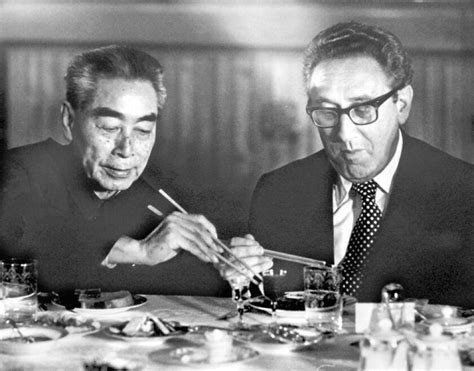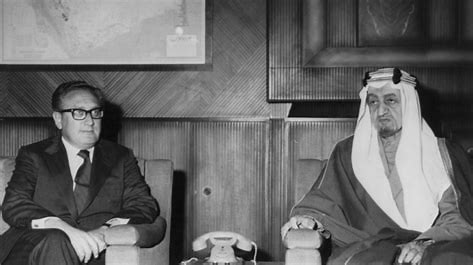Legacy Unveiled: Henry Kissinger’s Diplomatic Odyssey, Journeying Through Controversy, Triumphs, and Reflections at 100
Introduction: Henry Kissinger’s Enduring Legacy

Henry Kissinger, a towering figure in the realm of diplomacy and foreign policy, bid farewell to the world at the age of 100. The echoes of his remarkable journey, shaped by both triumphs and controversies, resonate through the corridors of history. His demise, announced from his Connecticut residence by his consulting firm, Kissinger Associates, marks the end of an era that profoundly influenced U.S. foreign affairs and global geopolitics.

Born on May 27, 1923, in Fürth, Germany, Kissinger’s life unfolded against the backdrop of tumultuous times. Fleeing the clutches of Nazi persecution, he sought refuge in the United States in 1938, setting the stage for a future marked by resilience and tenacity. His journey from a Jewish refugee to becoming a naturalized U.S. citizen in 1943 encapsulates the indomitable spirit that defined his life.
Kissinger’s foray into public service commenced with fervor. After earning his doctorate at Harvard University, he embarked on a career that would see him consulting with the State Department and Pentagon on matters of national security. The trajectory of his influence rose meteorically as he assumed roles such as national security adviser and secretary of state under President Richard Nixon.

The 1970s bore witness to Kissinger’s indelible mark on history. He orchestrated diplomatic breakthroughs that shaped the global landscape, earning him the Nobel Peace Prize for his efforts to conclude U.S. involvement in the Vietnam War. Simultaneously, his approach to normalizing relations with China opened a new chapter in international relations. However, amid these triumphs, the shadows of controversy lengthened, notably with the bombing of Cambodia and allegations of supporting a coup in Chile.

Beyond the corridors of power, Kissinger’s post-government years were characterized by prolific writing and global consultation. A public figure whose personal life, public appearances, and even nights at Studio 54 became the stuff of headlines, he remained a compelling presence long after his official duties concluded.
As the world reflects on the life and legacy of Henry Kissinger, the pages of history bear witness to the complexities of a statesman who navigated the intricate terrain of international relations. His death marks not just the passing of an individual but the end of a chapter in the chronicles of diplomacy, leaving behind a legacy that will continue to be dissected, debated, and, above all, remembered.
Legacy of Diplomacy: Navigating Complex Terrain
Henry Kissinger’s imprint on the annals of diplomacy is a tapestry woven with threads of intricate negotiations, geopolitical recalibrations, and profound global impact. As a chief architect of U.S. foreign policy during the Nixon administration, Kissinger navigated the turbulent waters of the 1970s with a distinctive blend of pragmatism and strategic vision.
At the heart of Kissinger’s diplomatic legacy lies the resolution of the Vietnam War, a conflict that had deeply divided the American public. The Paris Peace Accords of 1973, brokered by Kissinger and Vietnamese politician Le Duc Tho, earned him the Nobel Peace Prize. However, the accolade came with its share of controversy, as Tho declined the honor, citing the absence of actual peace in Vietnam. The intricacies of these negotiations underscored the challenges and ethical dilemmas inherent in the pursuit of diplomatic solutions.

Kissinger’s “shuttle diplomacy” in the Middle East exemplified his ability to defuse tensions and broker agreements in volatile regions. Following the aftermath of the 1973 Yom Kippur War, he crisscrossed the region, engaging in face-to-face negotiations to separate Israeli and Arab forces. The resulting disengagement agreements laid the groundwork for a delicate balance that, to some extent, endures to this day.
The doctrine of “détente” defined Kissinger’s approach to U.S.-Soviet relations, marking a departure from the adversarial Cold War stance. His strategic engagement with the Soviet Union contributed to the relaxation of tensions and the signing of several arms control agreements. This diplomatic posture aimed at fostering stability in the midst of ideological differences, setting the stage for subsequent administrations to build upon.

However, the legacy of Kissinger’s diplomatic endeavors is a nuanced tapestry, woven with both triumphs and critiques. The secretiveness surrounding Nixon-Kissinger foreign policy drew objections from many quarters, including members of Congress. Critics accused them of neglecting human rights concerns in pursuit of realpolitik objectives. The bombing of Cambodia, a covert operation during the Vietnam War, became a focal point of condemnation, leading to a cascade of consequences, including the rise of the genocidal Khmer Rouge regime.
In South America, Kissinger’s role in supporting a coup against a democratically elected government in Chile under President Salvador Allende further fueled debates about the ethical dimensions of U.S. foreign policy. The ramifications of these interventions cast a long shadow over Kissinger’s legacy, creating a perennial source of contention among historians and policymakers alike.

As the curtain falls on the era of Henry Kissinger, the legacy of his diplomacy remains a complex mosaic, reflecting the intricate dance of power, morality, and pragmatism. His contributions to reshaping the global order are undeniable, yet the ethical dilemmas that accompanied these achievements linger as a reminder that diplomacy, in its pursuit of stability and peace, is a multifaceted endeavor with consequences that resonate across generations.
Ensuring Legacy and Reflection: Henry Kissinger’s Enduring Impact
As the pages of history turn, the legacy of Henry Kissinger reverberates through the corridors of diplomacy, leaving an indelible mark on the geopolitical landscape. Part three of our exploration delves into the post-government years of this iconic figure, examining how he worked to cement his impact and the reflections that mark his twilight years.

Following his tenure in government, Kissinger embarked on a prolific career as an author, globetrotting intellectual, and sought-after consultant. His memoirs, notably “White House Years” and “Years of Upheaval,” provided insights into the inner workings of power, offering a lens into the complexities of international relations. Through the written word, Kissinger sought to shape the narrative of his legacy, offering his perspective on critical junctures and controversial decisions.
In the realm of academia, Kissinger continued to contribute to the discourse on international relations. Returning to his alma mater, Harvard University, he shared his wealth of experience as a faculty member. His lectures and writings became essential reading for aspiring diplomats, shaping the intellectual foundations of a new generation of foreign policy thinkers.

A pivotal moment in Kissinger’s post-government journey was his appointment by President George W. Bush to lead the 9/11 Commission in 2002. Tasked with investigating the events leading up to the tragic terrorist attacks, Kissinger’s role was, however, short-lived. Citing potential conflicts of interest, he resigned from the position, underscoring the delicate balance between public service and private pursuits.
Kissinger’s influence extended beyond American borders, as he engaged with leaders and thinkers worldwide. His insights were sought in times of crisis, and his presence at global forums underscored his enduring relevance. The statesman who once orchestrated secret missions and delicate negotiations had become a sage voice, offering counsel in a rapidly evolving world.
Yet, the legacy of Henry Kissinger is one that provokes both admiration and critique. While admirers laud his strategic acumen and contributions to diplomatic solutions, critics emphasize the ethical complexities of his decisions. The moral dimensions of realpolitik, highlighted by interventions in Vietnam, Cambodia, and Chile, continue to be subjects of intense scrutiny.

In his twilight years, Kissinger’s public appearances and reflections underscored the challenges of navigating the intricate balance between pragmatism and moral considerations. His musings on the art of negotiation and the imperatives of understanding diverse perspectives resonated with a world grappling with shifting power dynamics.
As we reflect on the enduring impact of Henry Kissinger, it is crucial to acknowledge the multifaceted nature of his legacy. Beyond the geopolitical chessboard, he bequeathed a legacy that sparks conversations on the ethical responsibilities of those who shape the course of nations. In the tapestry of diplomatic history, Kissinger’s chapter remains both a testament to the complexities of leadership and a reminder that the pursuit of global stability demands unwavering introspection.

Source:
https://edition.cnn.com/2023/11/29/politics/henry-kissinger-dead/index.htmlce
